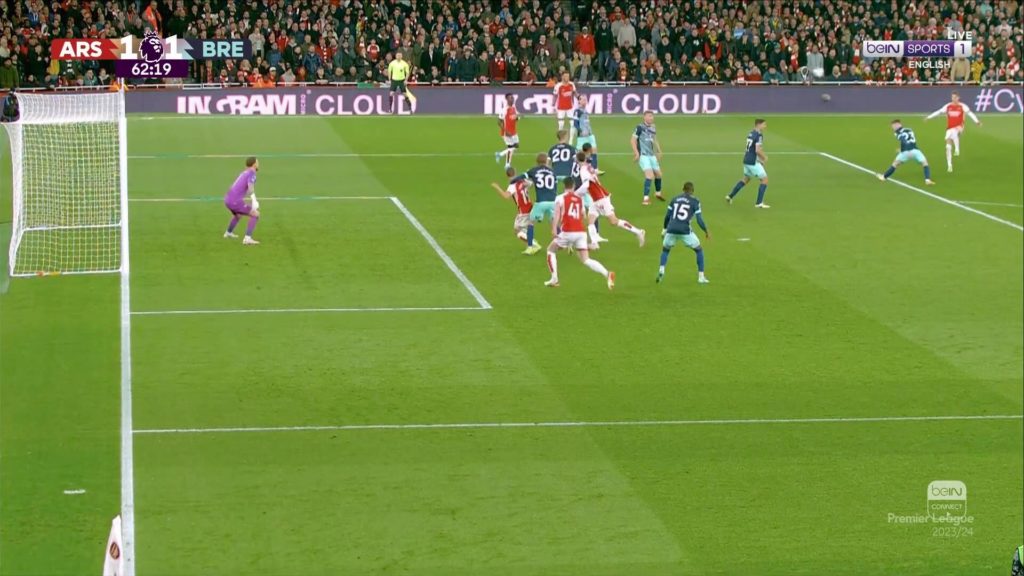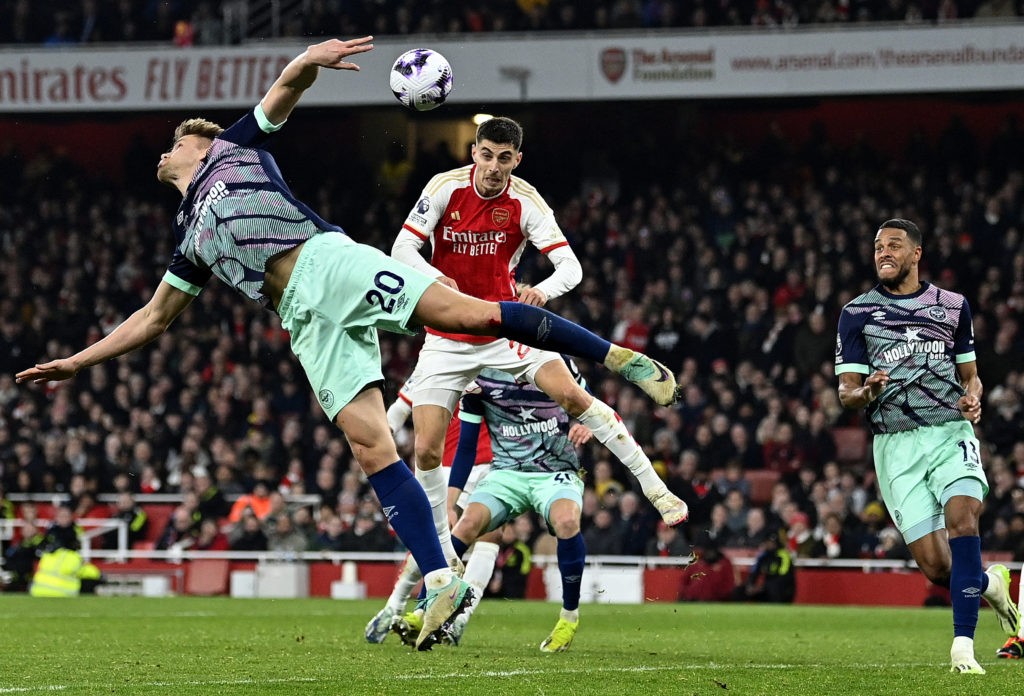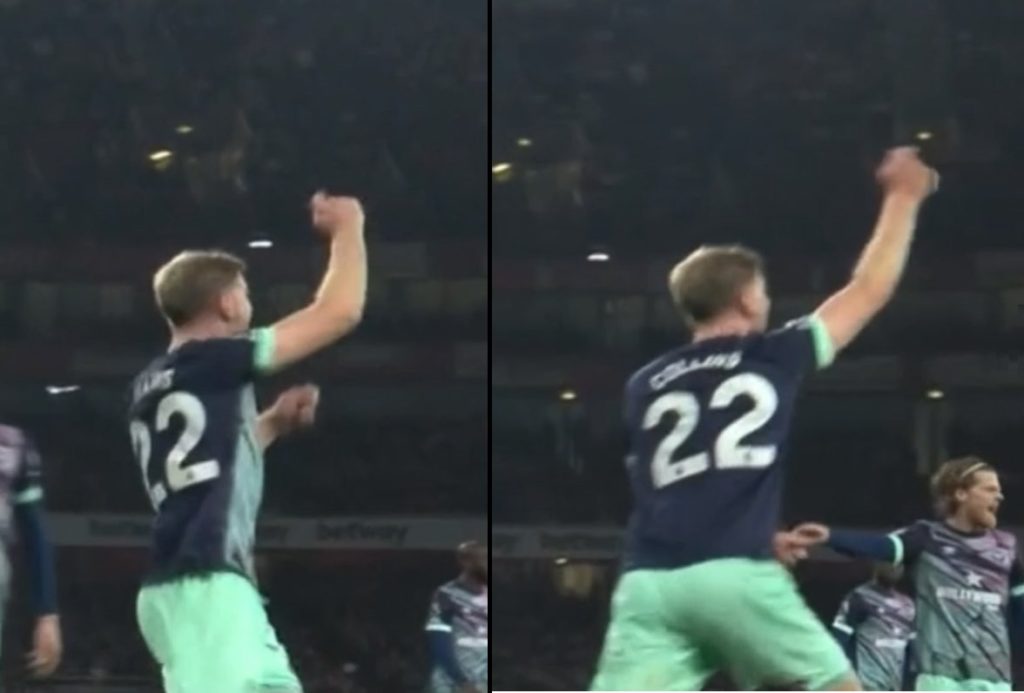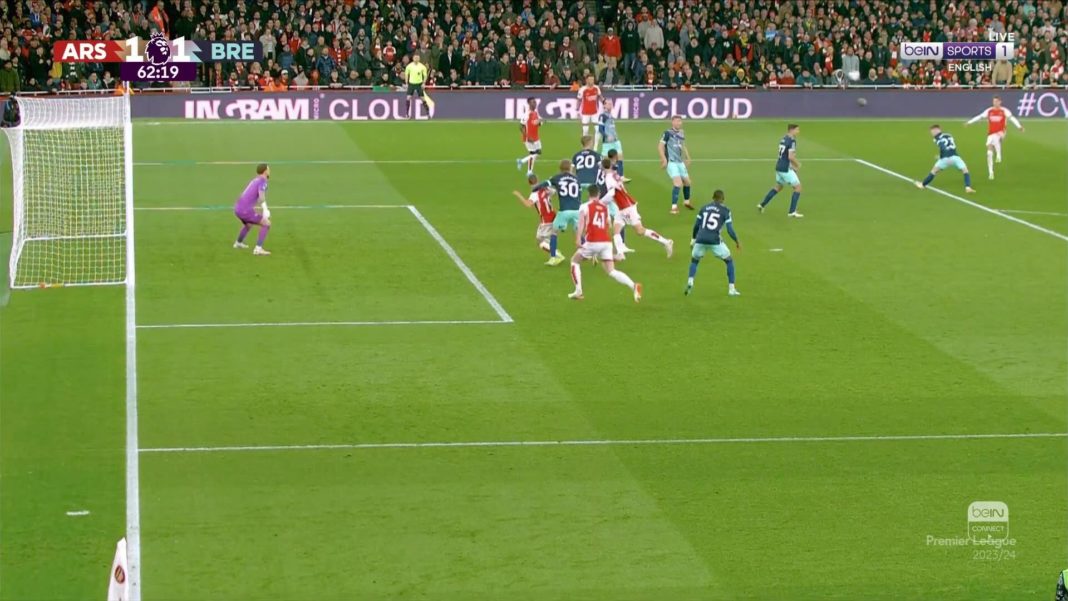Brentford were lucky not to concede a penalty against Arsenal and the referee made the correct decisions on Kai Havertz, according to former referee Dermot Gallagher.

There were a couple of contentious incidents in Arsenal’s match against Brentford on Saturday, and former referee Dermot Gallagher believes the away side were lucky with the decisions they got.
Gallagher told Sky Sports that he felt Brentford were “really, really lucky” not to concede a penalty as Leandro Trossard was hauled down in the penalty area in the 62nd minute.
The ball had been clipped into the penalty area, and Trossard was running to meet it. But he was pulled down by the arm from Mads Roerslev, who made no attempt to go for the ball.

The other major talking point was a potential red card for Kai Havertz.
Havertz had already picked up a yellow earlier in the game, and Thomas Frank argued afterwards that the forward should have received a second yellow for a “clear dive” in the penalty area.
But the replays showed clear contact on the German international, and Gallagher argues that the referee made the right call by not awarding a penalty or a yellow card.
“I think there is enough contact – if you’re going to send a player off for diving it’s got to be a clear dive,” Gallagher said.
“If you look at the referee’s angle, he sees the ball go to the right, which gives the indication that Nathan Collins has played the ball.
“You also think Havertz goes over Collins’ leg – when you see it from an alternative angle it’s not the case. But baring in mind the referee decides no penalty, the VAR has two decisions – is it a penalty? No.
“VAR says no penalty, and he cannot recommend a second yellow card. The only time he can say it’s simulation is if the penalty is awarded. There is no halfway house, it’s all or nothing.”

As we highlighted at the weekend, Nathan Collins also should have received two yellow cards during the match, with the referee failing to award one after Collins clearly brandished an imaginary card in his direction.
Such an infringement was branded an “automatic yellow card” in the guidelines given at the start of the season. But Collins escaped punishment.
In the end, justice was done for the incorrect decisions against Arsenal, as Havertz scored the winning goal.

